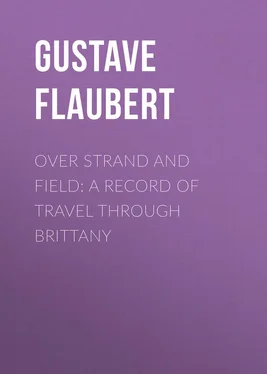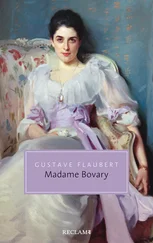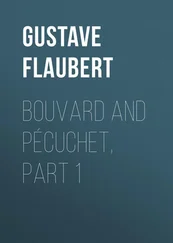Gustave Flaubert - Over Strand and Field - A Record of Travel through Brittany
Здесь есть возможность читать онлайн «Gustave Flaubert - Over Strand and Field - A Record of Travel through Brittany» — ознакомительный отрывок электронной книги совершенно бесплатно, а после прочтения отрывка купить полную версию. В некоторых случаях можно слушать аудио, скачать через торрент в формате fb2 и присутствует краткое содержание. Жанр: foreign_antique, foreign_prose, на английском языке. Описание произведения, (предисловие) а так же отзывы посетителей доступны на портале библиотеки ЛибКат.
- Название:Over Strand and Field: A Record of Travel through Brittany
- Автор:
- Жанр:
- Год:неизвестен
- ISBN:нет данных
- Рейтинг книги:3 / 5. Голосов: 1
-
Избранное:Добавить в избранное
- Отзывы:
-
Ваша оценка:
- 60
- 1
- 2
- 3
- 4
- 5
Over Strand and Field: A Record of Travel through Brittany: краткое содержание, описание и аннотация
Предлагаем к чтению аннотацию, описание, краткое содержание или предисловие (зависит от того, что написал сам автор книги «Over Strand and Field: A Record of Travel through Brittany»). Если вы не нашли необходимую информацию о книге — напишите в комментариях, мы постараемся отыскать её.
Over Strand and Field: A Record of Travel through Brittany — читать онлайн ознакомительный отрывок
Ниже представлен текст книги, разбитый по страницам. Система сохранения места последней прочитанной страницы, позволяет с удобством читать онлайн бесплатно книгу «Over Strand and Field: A Record of Travel through Brittany», без необходимости каждый раз заново искать на чём Вы остановились. Поставьте закладку, и сможете в любой момент перейти на страницу, на которой закончили чтение.
Интервал:
Закладка:
When one enters, he is surprised and astonished at the wonderful mixture of ruins and trees, the ruins accentuating the freshness of the trees, while the latter in turn, render more poignant the melancholy of the ruins. Here, indeed, is the beautiful, eternal, and brilliant laughter of nature over the skeleton of things; here is the insolence of her wealth and the deep grace of her encroachments, and the melodious invasions of her silence. A grave and pensive enthusiasm fills one's soul; one feels that the sap flows in the trees and that the grass grows with the same strength and the same rhythm, as the stones crumble and the walls cave in. A sublime art, in the supreme accord of secondary discordances, has contrasted the unruly ivy with the sinuous sweep of the ruins, the brambles with the heaps of crumbling stones, the clearness of the atmosphere with the strong projections of the masses, the colour of the sky with the colour of the earth, reflecting each one in the other: that which was, and that which is. Thus history and nature always reveal, though they may accomplish it in a circumscribed spot of the world, the unceasing relation, the eternal hymen of dying humanity and the growing daisy; of the stars that glow, and the men who expire, of the heart that beats and the wave that rises. And this is so clearly indicated here, is so overwhelming, that one shudders inwardly, as if this dual life centred in one's own body; so brutal and immediate is the perception of these harmonies and developments. For the eye also has its orgies and the mind its delights.
At the foot of two large trees, the trunks of which are intersected, a stream of light floods the grass and seems like a luminous river, brightening the solitude. Overhead, a dome of leaves, through which one can see the sky presenting a vivid contrast of blue, reverberates a bright, greenish light, which illuminates the ruins, accentuating the deep furrows, intensifying the shadows, and disclosing all the hidden beauties. You advance and walk between those walls and under the trees, wander along the barbicans, pass under the falling arcades from which spring large, waving plants. The vaults, which contain corpses, echo under your footfalls; lizards run in the grass, beetles creep along the walls, the sky is blue, and the sleepy ruins pursue their dream.
With its triple enclosure, its dungeons, its interior court-yards, its machicolations, its underground passages, its ramparts piled one upon the other, like a bark on a bark and a shield on a shield, the ancient Château of the Clissons rises before your mind and is reconstructed. The memory of past existences exudes from its walls with the emanations of the nettles and the coolness of the ivy. In that castle, men altogether different from us were swayed by passions stronger than ours; their hands were brawnier and their chests broader.
Long black streaks still mark the walls, as in the time when logs blazed in the eighteen-foot fireplaces. Symmetrical holes in the masonry indicate the floors to which one ascended by winding staircases now crumbling in ruins, while their empty doors open into space. Sometimes a bird, taking flight from its nest hanging in the branches, would pass with spread wings through the arch of a window, and fly far away into the country.
At the top of a high, bleak wall, several square bay-windows, of unequal length and position, let the pure sky shine through their crossed bars; and the bright blue, framed by the stone, attracted my eye with surprising persistency. The sparrows in the trees were chirping, and in the midst of it all a cow, thinking, no doubt, that it was a meadow, grazed peacefully, her horns sweeping over the grass.
There is a window, a large window that looks out into a meadow called la prairie des chevaliers . It was there, from a stone bench carved in the wall, that the high-born dames of the period watched the knights urge their iron-barbed steeds against one another, and the lances come down on the helmets and snap, and the men fall to the ground. On a fine summer day, like to-day, perhaps, when the mill that enlivens the whole landscape did not exist, when there were roofs on the walls, and Flemish hangings, and oil-cloths on the window-sills, when there was less grass, and when human voices and rumours filled the air, more than one heart beat with love and anguish under its red velvet bodice. Beautiful white hands twitched with fear on the stone, which is now covered with moss, and the embroidered veils of high caps fluttered in the wind that plays with my cravat and that swayed the plumes of the knights.
We went down into the vaults where Jean V was imprisoned. In the men's dungeon we saw the large double hook that was used for executions; and we touched curiously with our fingers the door of the women's prison. It is about four inches thick and is plated with heavy iron bars. In the middle is a little grating that was used to throw in whatever was necessary to prevent the captive from starving. It was this grating which opened instead of the door, which, being the mouth of the most terrible confessions, was one of those that always closed but never opened. In those days there was real hatred. If you hated a person, and he had been kidnapped by surprise or traitorously trapped in an interview, and was in your power, you could torture him at your own sweet will. Every minute, every hour, you could delight in his anguish and drink his tears. You could go down into his cell and speak to him and bargain with him, laugh at his tortures, and discuss his ransom; you could live on and off him, through his slowly ebbing life and his plundered treasures. Your whole castle, from the top of the towers to the bottom of the trenches, weighed on him, crushing, and burying him; and thus family revenges were accomplished by the family itself, a fact which constituted their potency and symbolised the idea.
Sometimes, however, when the wretched prisoner was an aristocrat and a wealthy man, and he near death, and one was tired of him, and his tears had acted upon the hatred of his master like refreshing bleedings, there was talk of releasing him. The captive promised everything; he would return the fortified towns, hand over the keys to his best cities, give his daughter in marriage, endow churches and journey on foot to the Holy Sepulchre. And money! Money! Why, he would have more of it coined by the Jews! Then the treaty would be signed and dated and counter-signed; the relics would be brought forth to be sworn on, and the prisoner would be a free man once more. He would jump on his horse, gallop away, and when he reached home he would order the drawbridge hoisted, call his vassals together, and take down his sword from the wall. His hatred would find an outlet in terrific explosions of wrath. It was the time of frightful passions and victorious rages. The oath? The Pope would free him from it, and the ransom he simply ignored.
When Clisson was imprisoned in the Château de l'Hermine, he promised for his freedom a hundred thousand francs' worth of gold, the restitution of the towns belonging to the duke of Penthièvre, and the cancelling of his daughter Marguerite's betrothal to the Duke of Penthièvre. But as soon as he was set free, he began by attacking Chateladren, Guingamp, Lamballe and St. Malo, which cities either were taken or they capitulated. But the people of Brittany paid for the fun.
When Jean V. was captured by the Count of Penthièvre at the bridge of Loroux, he promised a ransom of one million; he promised his eldest daughter, who was already betrothed to the King of Sicily. He promised Montcontour, Sesson and Jugan, etc., but he gave neither his daughter nor the money, nor the cities. He had promised to go to the Holy Sepulchre. He acquitted himself of this by proxy. He had taken an oath that he would no longer levy taxes and subsidies. The Pope freed him from this pledge. He had promised to give Nôtre-Dame de Nantes his weight in gold; but as he weighed nearly two hundred pounds, he remained greatly indebted. With all that he was able to pick up or snatch away, he quickly formed a league and compelled the house of Penthièvre to buy the peace which they had sold to him.
Читать дальшеИнтервал:
Закладка:
Похожие книги на «Over Strand and Field: A Record of Travel through Brittany»
Представляем Вашему вниманию похожие книги на «Over Strand and Field: A Record of Travel through Brittany» списком для выбора. Мы отобрали схожую по названию и смыслу литературу в надежде предоставить читателям больше вариантов отыскать новые, интересные, ещё непрочитанные произведения.
Обсуждение, отзывы о книге «Over Strand and Field: A Record of Travel through Brittany» и просто собственные мнения читателей. Оставьте ваши комментарии, напишите, что Вы думаете о произведении, его смысле или главных героях. Укажите что конкретно понравилось, а что нет, и почему Вы так считаете.












